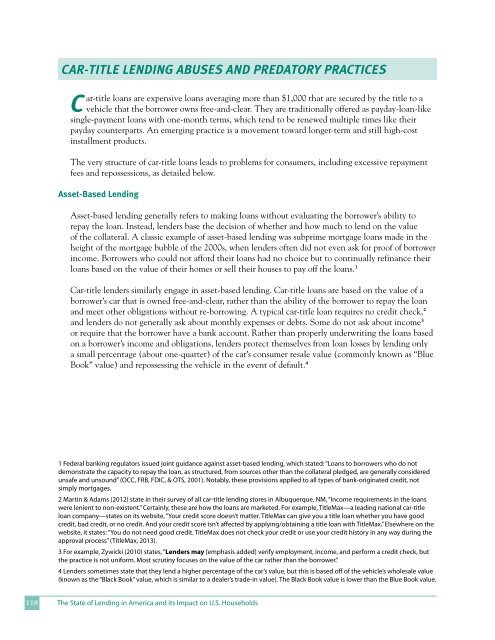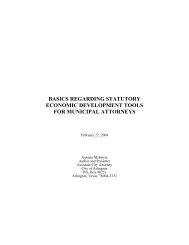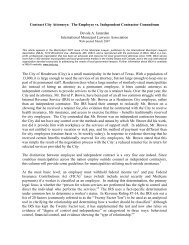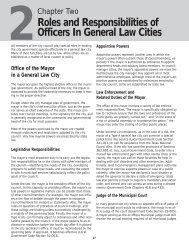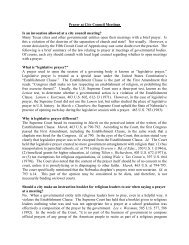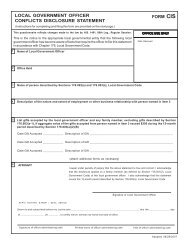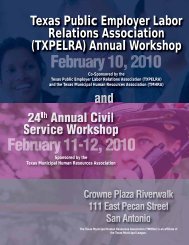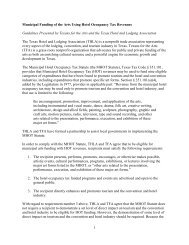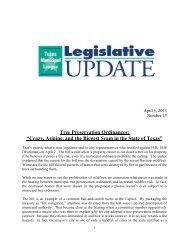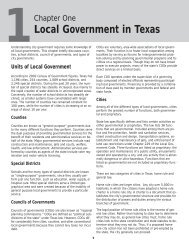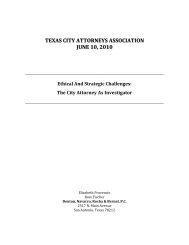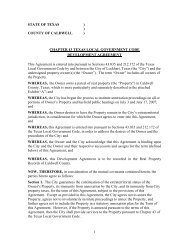Center for Responsible Lending Car Title Loans Report
Center for Responsible Lending Car Title Loans Report
Center for Responsible Lending Car Title Loans Report
Create successful ePaper yourself
Turn your PDF publications into a flip-book with our unique Google optimized e-Paper software.
CAR-TITLE LENDING ABUSES AND PREDATORY PRACTICES<strong>Car</strong>-title loans are expensive loans averaging more than $1,000 that are secured by the title to avehicle that the borrower owns free-and-clear. They are traditionally offered as payday-loan-likesingle-payment loans with one-month terms, which tend to be renewed multiple times like theirpayday counterparts. An emerging practice is a movement toward longer-term and still high-costinstallment products.The very structure of car-title loans leads to problems <strong>for</strong> consumers, including excessive repaymentfees and repossessions, as detailed below.Asset-Based <strong>Lending</strong>Asset-based lending generally refers to making loans without evaluating the borrower’s ability torepay the loan. Instead, lenders base the decision of whether and how much to lend on the valueof the collateral. A classic example of asset-based lending was subprime mortgage loans made in theheight of the mortgage bubble of the 2000s, when lenders often did not even ask <strong>for</strong> proof of borrowerincome. Borrowers who could not af<strong>for</strong>d their loans had no choice but to continually refinance theirloans based on the value of their homes or sell their houses to pay off the loans.1<strong>Car</strong>-title lenders similarly engage in asset-based lending. <strong>Car</strong>-title loans are based on the value of aborrower’s car that is owned free-and-clear, rather than the ability of the borrower to repay the loanand meet other obligations without re-borrowing. A typical car-title loan requires no credit check,2and lenders do not generally ask about monthly expenses or debts. Some do not ask about income3or require that the borrower have a bank account. Rather than properly underwriting the loans basedon a borrower’s income and obligations, lenders protect themselves from loan losses by lending onlya small percentage (about one-quarter) of the car’s consumer resale value (commonly known as “BlueBook” value) and repossessing the vehicle in the event of default.41 Federal banking regulators issued joint guidance against asset-based lending, which stated: “<strong>Loans</strong> to borrowers who do notdemonstrate the capacity to repay the loan, as structured, from sources other than the collateral pledged, are generally consideredunsafe and unsound” (OCC, FRB, FDIC, & OTS, 2001). Notably, these provisions applied to all types of bank-originated credit, notsimply mortgages.2 Martin & Adams (2012) state in their survey of all car-title lending stores in Albuquerque, NM, “Income requirements in the loanswere lenient to non-existent.” Certainly, these are how the loans are marketed. For example, <strong>Title</strong>Max—a leading national car-titleloan company—states on its website, “Your credit score doesn’t matter. <strong>Title</strong>Max can give you a title loan whether you have goodcredit, bad credit, or no credit. And your credit score isn’t affected by applying/obtaining a title loan with <strong>Title</strong>Max.” Elsewhere on thewebsite, it states: “You do not need good credit. <strong>Title</strong>Max does not check your credit or use your credit history in any way during theapproval process” (<strong>Title</strong>Max, 2013).3 For example, Zywicki (2010) states, “Lenders may [emphasis added] verify employment, income, and per<strong>for</strong>m a credit check, butthe practice is not uni<strong>for</strong>m. Most scrutiny focuses on the value of the car rather than the borrower.”4 Lenders sometimes state that they lend a higher percentage of the car’s value, but this is based off of the vehicle’s wholesale value(known as the “Black Book” value, which is similar to a dealer’s trade-in value). The Black Book value is lower than the Blue Book value.118The State of <strong>Lending</strong> in America and its Impact on U.S. Households


